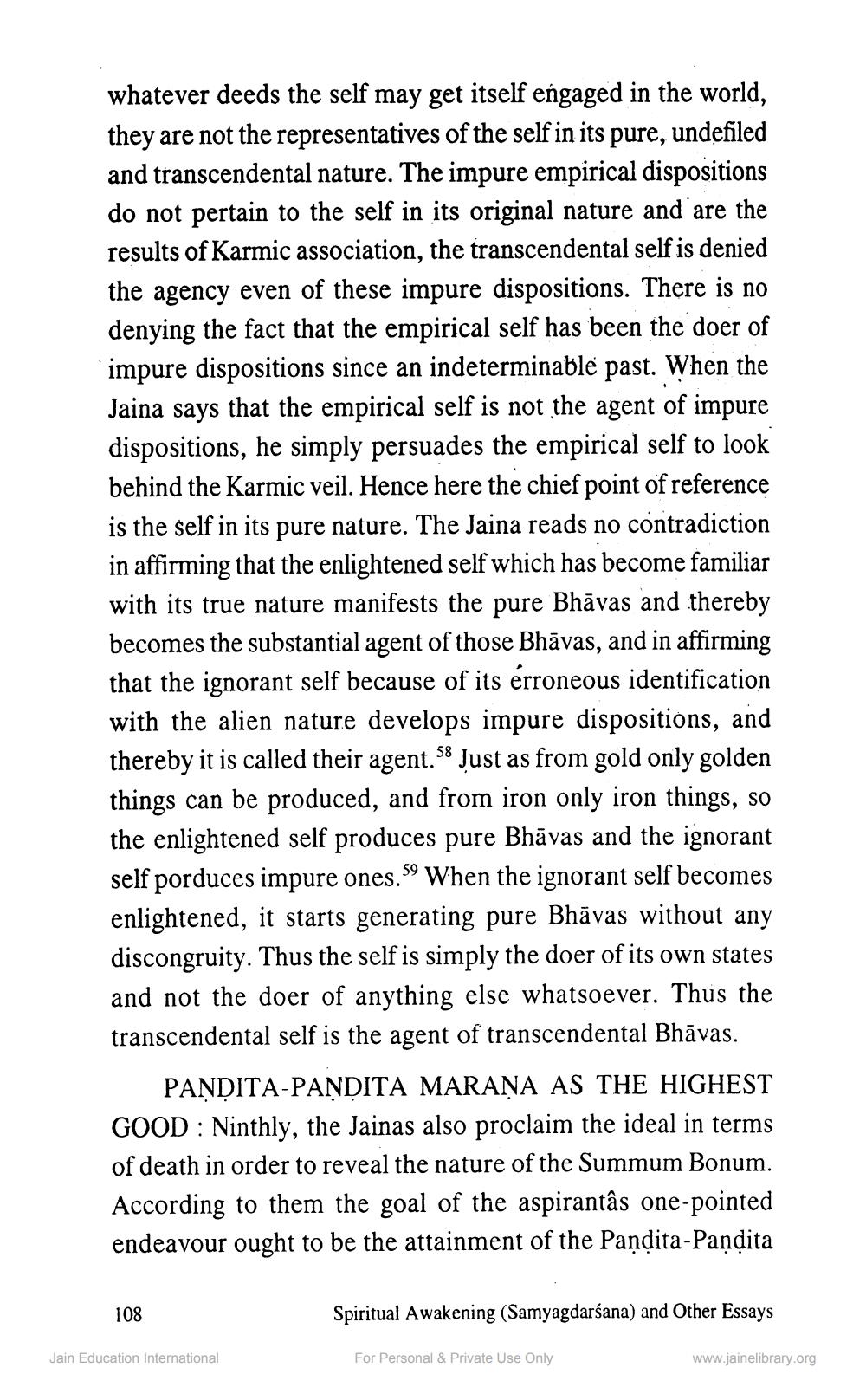________________
whatever deeds the self may get itself engaged in the world, they are not the representatives of the self in its pure, undefiled and transcendental nature. The impure empirical dispositions do not pertain to the self in its original nature and are the results of Karmic association, the transcendental self is denied the agency even of these impure dispositions. There is no denying the fact that the empirical self has been the doer of impure dispositions since an indeterminable past. When the Jaina says that the empirical self is not the agent of impure dispositions, he simply persuades the empirical self to look behind the Karmic veil. Hence here the chief point of reference is the self in its pure nature. The Jaina reads no contradiction in affirming that the enlightened self which has become familiar with its true nature manifests the pure Bhāvas and thereby becomes the substantial agent of those Bhāvas, and in affirming that the ignorant self because of its érroneous identification with the alien nature develops impure dispositions, and thereby it is called their agent.58 Just as from gold only golden things can be produced, and from iron only iron things, so the enlightened self produces pure Bhāvas and the ignorant self porduces impure ones. 59 When the ignorant self becomes enlightened, it starts generating pure Bhāvas without any discongruity. Thus the self is simply the doer of its own states and not the doer of anything else whatsoever. Thus the transcendental self is the agent of transcendental Bhāvas.
PANDITA-PANDITA MARANA AS THE HIGHEST GOOD : Ninthly, the Jainas also proclaim the ideal in terms of death in order to reveal the nature of the Summum Bonum. According to them the goal of the aspirantâs one-pointed endeavour ought to be the attainment of the Pandita-Pandita
108
Spiritual Awakening (Samyagdarśana) and Other Essays
Jain Education International
For Personal & Private Use Only
www.jainelibrary.org




